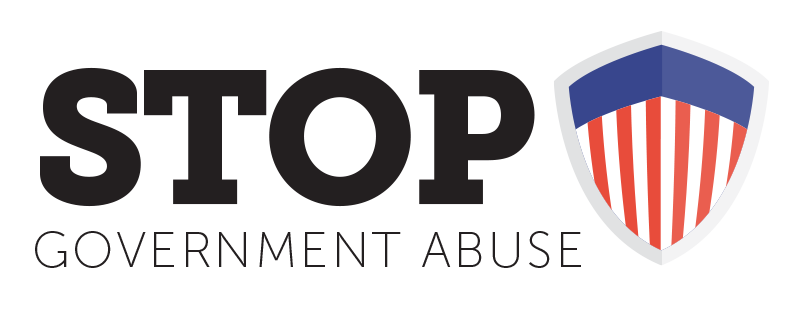Bureaucrats and regulations are one of the biggest impediments to unleashing our economy and the American worker. More and more, government red tape is wrapped around our economic potential and weighing down our recovery, burying Ohio families and businesses in mandated government compliance that costs time and money.
A recent Organization for Economic Co-operation and Development study says, when measured by regulation, “it is now easier to start a business in Slovenia, Estonia, and Hungary than in the US.” We’re losing our edge on innovation and entrepreneurship, because the federal government is getting in the way.
The total federal regulatory burden now reaches up to an estimated $1.68 trillion.
That’s more than $300 billion higher than combined individual and corporate federal income taxes and equivalent to 85 percent of U.S. corporate profits in 2013.
That’s $14,678 per household – equal to 23.2% of a family's average income!
Even when pointed in the right direction, Federal agencies failed to implement more than 16,000 recommendations from non-partisan Inspectors General, which could save more than $67 billion for American taxpayers.
Sluggish job growth, higher health care costs, and an out-of-control government are not what hardworking Ohioans deserve. We must get Washington out of the way - whether at the doctor’s office, in the job market, or at the gas pump – to build an America that works.
Bills I Supported this week to Stop Government Abuse
H.R. 899 - Unfunded Mandates Information and Transparency Act of 2013
Enhances transparency, accountability, and awareness of federal mandates.
H.R. 3865 - Stop Targeting of Political Beliefs by the IRS Act of 2014
Prevents the Obama Administration's proposed IRS regulations on 501(c)(4) organizations from taking effect. These new regulations will have a chilling effect on the exercise of American's first amendment rights to freedom of expression and free speech - aimed at stifling speech and quieting those who disagree with the administration.
H.R. 2804 – Achieving Less Excess in Regulation and Requiring Transparency (ALERRT) Act
Includes the following 4 pieces of legislation:
H.R. 2122 - Regulatory Accountability Act of 2013
This legislation would codify many practices aimed at increasing regulatory transparency and accountability that are currently required under several executive orders, requires agencies to tailor new regulations to impose the least cost necessary, and promotes openness and transparency in the regulatory process.
H.R. 1493 - Sunshine for Regulatory Decrees and Settlements Act of 2013
Revises the way legal settlements that require agencies to take regulatory action are reached, ensuring transparency and public input in this process.
H.R. 2542 - Regulatory Flexibility Improvements Act
Requires federal agencies to identify and reduce the costs new regulations would impose on small business.
H.R. 2804 - ALERT Act
Requires federal agencies to publish more timely information on the status and cost of planned new regulations, preventing regulators from hiding the ball and helping the public to better plan for new regulations.
H.R. 1211 - FOIA Act
Directs federal agencies to process Freedom of Information Act (FOIA) requests with a presumption of openness, placing the burden on them to justify withholding information. The bill also creates a pilot FOIA online program, which allows users to submit requests at one location, and for agencies to automatically post responsive records online.
H.R. 1232 - Federal Information Technology Acquisition Reform Act
Reforms the procurement management process the Government uses to purchase approximately $80 billion annually in IT products and services.
H.R. 1423 - Taxpayers Right-To-Know Act
Requires every federal agency to provide taxpayers an annual report card on all of its programs, providing administrative costs and staffing information, expenditures for services, and number of program recipients.
H.R. 3308 - Taxpayer Transparency Act of 2013
Requires executive branch agencies to include a disclaimer to alert the public to any communication (mailers, brochures, TV/radio ads, billboards, emails, etc.) paid for at taxpayer expense.
H.R. 1944 - Private Property Rights Protection Act of 2013
Denies some federal funds to states and localities that abuse eminent domain powers by taking private property from one private entity and giving it to another private entity in the name of "economic development", and provides for causes of action to enforce the law in court.
H.R. 1123 - Unlocking Consumer Choice and Wireless Competition Act
Allows wireless phones to be “unlocked,” thus giving consumers the ability to connect to different wireless communications networks.
H.R. 2530 - Taxpayer Transparency and Efficient Audit Act
Requires the IRS to disclose to a taxpayer when the IRS has shared their tax information with another government agency and places a time limit on how long an individual can be subjected to an IRS audit.
H.R. 2531 - Protecting Taxpayers from Intrusive IRS Requests Act
Prevents the IRS from inquiring on an individual’s religious, political, or social beliefs.


